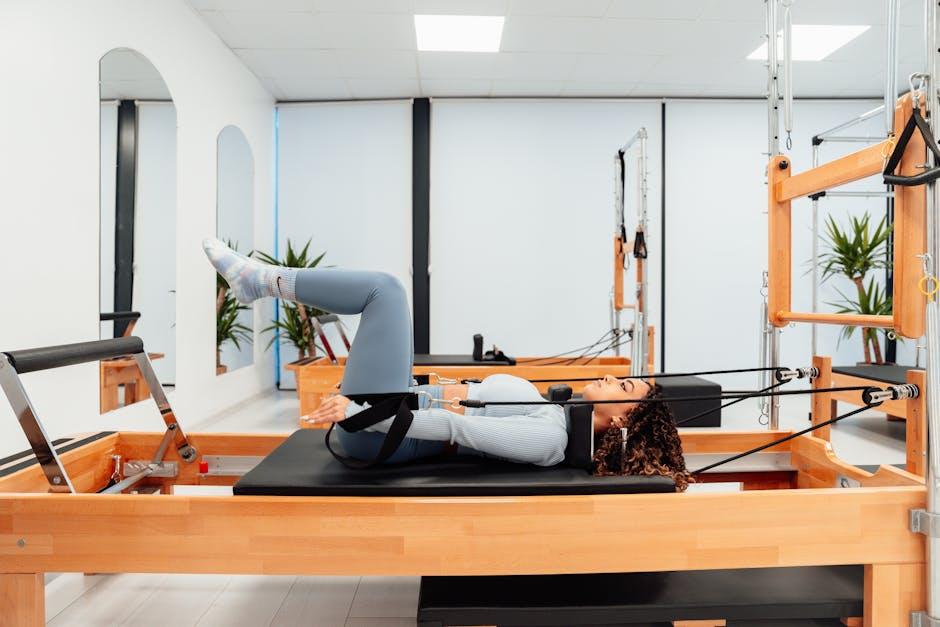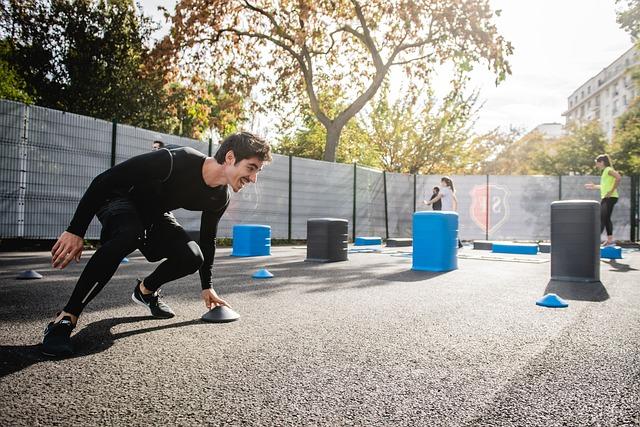In the symphony of movement and muscle, where sweat and determination dance in tandem, there lies an often-overlooked conductor: the breath. While weights clink and treadmills hum, the rhythm of inhalation and exhalation plays a pivotal, yet silent, role in the orchestration of an effective workout. Imagine harnessing this natural metronome to not only power through those last grueling reps but to elevate your entire fitness regimen to new heights. Welcome to the world of breathing techniques—a realm where each breath becomes a tool, fine-tuning your body’s performance and unlocking untapped potential. In this exploration, we delve into how mastering the art of breath can transform your workout efficiency, offering a fresh perspective on achieving your fitness goals with grace and precision.
Mastering the Art of Breath Control
Achieving peak performance during workouts isn’t just about physical strength; it’s about harnessing the power of your breath. Optimizing breath control can transform your exercise routine, enabling you to push boundaries with ease. To integrate effective breathing into your workouts, consider these transformative techniques:
- Diaphragmatic Breathing: Focus on deep breaths that engage the diaphragm, allowing more oxygen to fuel your muscles. This technique not only boosts endurance but also helps in maintaining calm during intense sessions.
- Box Breathing: Practice this four-step process by inhaling, holding, exhaling, and pausing for equal counts. It stabilizes your heart rate and helps in maintaining concentration, especially during strength training.
- Nasal Breathing: Breathing through your nose can enhance nitric oxide production, which improves blood flow and oxygen delivery, optimizing performance and recovery.
By incorporating these techniques, you can unlock new levels of efficiency in your workouts, allowing each session to be more productive and rewarding.
Harnessing Oxygen for Peak Performance
Mastering the art of breathing is akin to unlocking a hidden potential within your body. The right techniques can transform your workout, channeling energy more efficiently and enhancing endurance. Oxygen, the unsung hero of our physiology, fuels every cell, and when harnessed effectively, it can significantly boost performance. Consider incorporating these breathing techniques into your routine:
- Diaphragmatic Breathing: Engage your diaphragm by breathing deeply into your belly rather than shallowly into your chest. This increases oxygen intake and promotes relaxation, reducing fatigue.
- Nasal Breathing: Inhaling through the nose warms and filters the air, optimizing oxygen delivery and aiding in maintaining a steady pace during cardiovascular exercises.
- Box Breathing: A rhythmic pattern involving equal counts for inhaling, holding, exhaling, and holding again. This technique enhances focus and calms the mind, perfect for high-intensity workouts.
Integrating these methods into your fitness regimen can lead to a more sustainable and powerful exercise experience. By optimizing oxygen flow, you allow your body to function at its highest capacity, turning each breath into a step towards peak performance.

Breathing Patterns for Different Workouts
Understanding the nuances of breathing can significantly elevate your workout experience, adapting to the specific demands of each type of exercise. During cardio workouts, such as running or cycling, aim for a steady rhythm. Inhale deeply through your nose and exhale through your mouth to maintain a balanced oxygen flow. This technique helps sustain endurance and keeps fatigue at bay. A good rhythm might look like:
- Running: Inhale for two strides, exhale for two strides.
- Cycling: Inhale for four pedal strokes, exhale for four strokes.
When engaging in strength training, the focus shifts to maximizing power and stability. Here, the rule of thumb is to exhale during the exertion phase and inhale during the recovery phase. This approach aids in maintaining core stability and optimizing force. Consider these patterns:
- Lifting Weights: Inhale before lifting, exhale while lifting.
- Push-Ups: Inhale as you lower, exhale as you push up.
Incorporating these breathing techniques not only enhances performance but also minimizes the risk of injury, creating a more holistic and efficient workout regimen.

Incorporating Mindful Breathing into Your Routine
Integrating mindful breathing into your workout routine can significantly boost your performance and enhance overall efficiency. By focusing on your breath, you not only improve oxygen flow to your muscles but also cultivate a heightened sense of awareness and presence. Here are a few ways to seamlessly weave mindful breathing into your exercises:
- Match Breath to Movement: Synchronize your breathing with your movements. For instance, inhale during the preparatory phase of a movement and exhale during the exertion phase.
- Box Breathing: This technique involves inhaling for four counts, holding the breath for four counts, exhaling for four counts, and holding again for four counts. It helps in maintaining a calm and focused mind.
- Nasal Breathing: Practice breathing through your nose rather than your mouth to encourage a deeper and more controlled breath, which can improve endurance and reduce fatigue.
Mindful breathing not only enhances your physical performance but also enriches your mental resilience, making your workouts more fulfilling and effective. Experiment with different techniques to discover what best complements your routine.
In Summary
In the rhythmic dance of breath and movement, we find a symphony that elevates the ordinary to the extraordinary. As we conclude our exploration of breathing techniques to enhance workout efficiency, let us carry forward the understanding that each inhale and exhale is more than just a physiological necessity—it is a powerful tool to unlock potential. Whether you’re a seasoned athlete or a fitness newcomer, the mastery of your breath can transform your workouts into a more harmonious and effective experience. As you lace up your sneakers or unroll your yoga mat, remember that the true essence of any exercise lies not just in the movement itself, but in the breath that fuels it. Embrace this newfound knowledge and let it guide you to new heights, where every breath is a step towards your personal best.


































